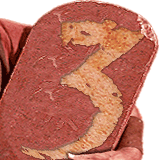
Knowing when and how to disburse these funds is as critical as knowing where to deposit them in the first place. Improper disbursements can truly cost you your license.
Beware of the following:
➤ Cash Disbursements - when you do write checks on the trust account, you must properly designate the payee so that a proper paper trail may be preserved. So if you write a check payable "to cash" or "to bearer," you're breaking the law;
➤ ATM Withdrawals - if, by mistake, your bank gave you an ATM card for your trust account, cut it up and inform your bank that no such cash withdrawals or debit-card payments will be permitted on this account;
➤ Borrowing - it's not your money. So borrowing funds on a rainy day, pledging the funds as security for other transactions or using the money for any unauthorized purpose is a misappropriation that will cost you your license;
➤ Overdrafts - if the disbursement would create a negative balance with regard to an individual client matter or all client matters in the aggregate, something has gone drastically wrong with your accounting.
If you overdraw your account, the bank must report the deficiency to disciplinary authorities, prompting an audit of your trust account as a whole. That's why it's absolutely critical that you reconcile your account every single month and that you refrain from disbursing funds deposited into the account until the check has cleared.
Even if other client funds are sufficient to cover the check, you cannot use one client's money on behalf of another. Take an account which holds a total of $100,000 in funds belonging to various clients. If I get a $30,000 check to settle the case of another client, I must wait until that check clears before I may disburse the proceeds. If I disburse too early, I'm using other clients' money to cover disbursements in a totally different case. That may prevent an overdraft, but you have effectively misappropriated someone else's funds.
Rather than wait for checks to clear, many banks will let you draw on an "available balance" which includes the deposit of checks that have yet to clear. But when it comes to trust accounts, an attorney may only disburse funds that have actually been collected by the bank. So no matter how desperate my clients may be to get their money, we will write no check before it's time.
My office staff will tell you that I'm absolutely paranoid when it comes to ensuring that checks clear before disbursing the funds. In that sense, some fear can be healthy.
Too much fear can have the opposite effect. Some lawyers are so afraid of overdrawing their accounts that they intentionally leave more money in the account than they should. Often, I will see an attorney who earned a $10,000 contingency fee on a $30,000 settlement take only a small part of the fee and draw on the remainder "as needed." By leaving earned fees in escrow, lawyers commingle their money with that of their clients. That may prevent overdrafts, but it violates the Rules of Professional Conduct. If later audited, we'd have to explain why we left our own money in the account. Fear of overdrafts won't excuse the violation.